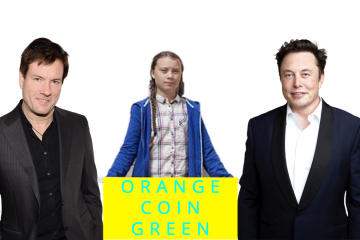From the copyright lobby dictatorship to media decentralization
Adoption of the disputed Article 11 and 13 of the Copyright directive by the European Parliament from the date 12th of September, on the one hand, is the result of very strong copyrighting lobby in EU (represented by copyright organizations including Universal Music Group and Warner Music Group). On the other hand, sadly, it is the result of technological amateurism of all EU Members (from Slovakia – Pál Csáky, Eduard Kukan, Vladimir Maňka, Miroslav Mikolášik, József Nagy, Monika Smolková, Ivan Štefanec, Anna Záborská, Boris Zala, Jana Žitňanská). The significant opponents of the directive are people like Jimmy Wales (founder of Wikipedia), Tim Berners-Lee (HTTP protocol creator) and many others.
Currently, the directive enters into further negotiations between the European Commission, Council and Parliament. These three organizations will decide on the final wording of legislation before being introduced to the EU Legal Affairs Committee (apparently sometime in December). In January 2019, the final wording of the directive will be again introduced in the European Parliament for the approval.
The final adoption of the directive will have a dramatic impact on the Internet in the EU. What kind of impact it will be, I explain in the article.
Article 11 (or also ‘hyperlink tax’)
It introduces the so-called ‘hyperlink tax’. If your website links (with URL link) to the copyrighted content page and your link contains just a few words from the copyright-protected article, according to the new legislation you are required to pay to the author of the copyrighted content so-called ‘hyperlink tax’. Arguments of advocates of this directive claim that they protect the interests of smaller media that are referred to by large platforms (such as Facebook or Google) that earn money in some way (for example, paid advertising). This means that under this new directive you should have an agreement with every web you are referring to.
Despite the fact that the Article 11 has successfully passed in the European Parliament, we already have an empirical evidence that it does not work as we would have imagined. The “link tax” was approved a few years ago in Spain, which caused Google News to leave the Spanish market, similar negative experiences with link tax fraud have in Germany.
Unfortunately, the European bureaucrats do not take into account the basics of the Internet marketing. The simple point is that when they will try to force the big players like Facebook or Google to pay tax for the links to a website with copyrighted content, they will simply stop to provide them in that particular country. In the best case, the traffic of that website will be reduced, in the worst case the site will ‘fall into oblivion’. After that, such a website even would not earn the amount which earned in a situation before – however, no one paid a ‘link tax’, but thanks to Google or Facebook it gained a large number of visitors what generated at least some money from its own advertisement.
As so often happens with typical regulation, it will hurt mainly those who supposed to be protected.
Article 13 (or ‘memes prohibition’)
Another ‘pearl’ made by the EU factory is a transferring of responsibility for any illegal copyright content directly to the provider of the web service itself and right at the moment of uploading a content. Presently, you can upload any copyrighted content on Facebook, Instagram, Youtube, or other services. Over time, this copyrighted content will be reported and the listed services will manually or automatically remove it.
Article 13 (or, as the case may be ‘memes ban’) enforces mandatory area control for all uploads of images, audio or video files that may contain copyrighted content. It should be noted that this check is relatively technically demanding and expensive. Therefore, it is discriminatory for small portals or completely liquidated for non-commercial portals without any income that has no means to control copyrighted content. There is real concern that automated desktop control will not be able to distinguish between uploaded real copyrighted content and “meme”, respectively (which is, for example, a parody). It may actually lead to situations when the upload of images or videos with memes would be technically prohibited (hence the title ‘memes prohibition’).
What to do with that?
The European Internet is probably the most over-regulated in the world (apart from the disputed ‘link tax’ or ‘memes prohibition’, it is worth to mention the Internet censorship applied also in Slovakia, the GDPR directive, EU cookie law, attempts to introduce “end-to-end “encryption, “data retention law” recently declared counter-agreement and many others).
Running any web portal or application in the EU is beginning to be a relatively expensive and legislatively demanding process when it makes an economic sense to move those services outside the EU (for example to Iceland or Switzerland).
Unfortunately, the threat of state Internet regulation is lurking in any country of the world. Therefore, the ultimate solution is the decentralization of media. It is worth to mention the decentralized blogging platforms steemit.com, yours.org or decentralized platforms for distributing video content (d.tube), streaming platforms (resonate.is, SingularDTV).
The States are able to enforce the legislation against the specific legal entities of the media. Therefore, their decentralization is inevitable. Currently, the states are losing their monopoly over money emitting due to cryptocurrencies, similarly, soon they will lose a power over issuing business licenses in favor of DAO (for example Aragon DAO).
We hope that the aggressive nature of copyright lobby and senseless laws will create a strong pressure on the expansion and creation of new decentralized platforms for content dissemination represented by decentralized legal entities.

